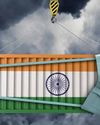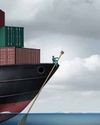
Q. India is going to use Mongla and Chattogram Ports. It has already begun using transit and transshipment facilities through Bangladesh which will help the development of India’s north-eastern states. What are the benefits to Bangladesh?
India had requested Bangladesh to allow it to use Chattogram Port even before our prime minister’s visit there in 2010. Our response was that India could use not only Chattogram, but also Mongla Port. It gives greater flexibility in operations if both ports are used. Say, if one port is congested for the time being, the other may be used. We took into consideration the need of Nepal and Bhutan, for whom Mongla is more convenient. Later, the two countries finalised the standard operating procedures on use of the two ports. You see, both the ports are used by foreign ships for trade with Bangladesh. In case of India, use of the ports is linked to transit through Bangladesh – agreements in this regard had existed since the partition of the subcontinent. Multimodality is a new dimension to transportation around the world. Indian goods will be carried across Bangladesh using road, rail, and inland water routes, whichever is convenient. They also need to store up the goods for some time. That needs warehouses. Right now we are not planning the whole thing together, but bit by bit, one after another. We are now improving roads for our own needs. India is also investing in improvement of the rail links. The Akhaura-Agartala train link is being established with Indian finance. Our benefit is that India will give us fees or charges for using our ports, inland water routes, roads and railways.
Q. A committee was formed to fix fees for transporting Indian goods through Bangladesh. However, its recommendations were not accepted. Why?
هذه القصة مأخوذة من طبعة January 2020 من Maritime Gateway.
ابدأ النسخة التجريبية المجانية من Magzter GOLD لمدة 7 أيام للوصول إلى آلاف القصص المتميزة المنسقة وأكثر من 8500 مجلة وصحيفة.
بالفعل مشترك ? تسجيل الدخول
هذه القصة مأخوذة من طبعة January 2020 من Maritime Gateway.
ابدأ النسخة التجريبية المجانية من Magzter GOLD لمدة 7 أيام للوصول إلى آلاف القصص المتميزة المنسقة وأكثر من 8500 مجلة وصحيفة.
بالفعل مشترك? تسجيل الدخول

Impact Of Covid-19 On Shipping And Logistics
Industry stalwarts discuss threadbare the prevailing logistics and supply chain scenario and issues in clearing cargo during the COVID-19 lockdown

Digital Platforms Defy Lockdown
Digital trading modules such as eNAM are enabling farmers to move their produce from farm to market even during the lockdown

GARMENT TRADE TRAMPLED
As retailers face a shutdown in US and Europe, the cascading affect has caused mass cancellation of orders in Bangladesh

TRADE RESUMES WITH CHINA
While India has allowed uninterrupted movement of imports into Nepal even during lockdown, China is reopening its borders as it emerges from the pandemic
LESS HUMAN INTENSIVE, MORE DATA DRIVEN
AI provides transformational opportunity for logistics industry by improving customer experience, operational efficiency, faster turnaround time and lower cost while ensuring security and transparency. Macro environment requires industry to transform to be less human intensive, agile and data driven, all of which can be accelerated by AI adoption, shares Gangadhar Gude, Founder & CEO, atai.ai

SHAKEN AND STIRRED
The COVID-19 pandemic has partially paralysed the logistics and supply chain, but the industry is still deterred to ensure supply of essentials continues

TRADE STUCK, ECONOMY SLOWS DOWN
Sri Lankan economy slows down as trade deficit widens and supply chain disrupts amidst lockdown

LENDING INTELLIGENCE TO SUPPLY CHAIN
If you’re shipping millions of dollars’ worth of pharmaceuticals, high-end electronics, expensive seafood, or precious metals, what would you be willing to pay for the ability to ‘ask’ your shipment where it is right now and whether it’s ok? What would you pay for a freight smart enough to raise an alarm before it spoils? Artificial Intelligence enables that and much more…

CONTAINER LINES SIGNAL ‘SOS'
As the per-unit cost of operations increases many lines are forced to blank sailings which has hit their bottom line real hard. The Government and Terminal Operators therefore need to actively consider reduction in Vessel Related Costs

IMO 2020 And The Covid-19 Curse
The COVID-19 outbreak has shaken and stirred the already volatile bunker market. While the refiners adjust their capacities and shipping lines choose their path to compliance, the market dynamics are yet to reach an equilibrium